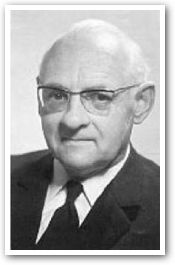October Subject

Years ago, I read Edward T. Oakes' Pattern of Redemption, The Theology of Hans Urs von Balthasar. I'm told it might be the best introduction to the thought of the greatest theologian of the twentieth century (among Protestants, Karl Barth would contend for the title; Barth and von Balthasar, I believe, both intensely respected one another). Even though I enjoyed the book, I couldn't remember a ton about it, though I was left with the enduring, if vague, understanding that the principle of contradiction does not nullify the existence of God because God creates and controls like a writer-director creates and "controls" a theater production: in a sense, he does, but when the rubber hits the stage, the actors are in complete control. This, as I understand it, is the essence of von Balthasar's Theo-Drama.
Last summer, I was listening to Catholic Stuff You Should Know's episode on von Balthasar. One of the podcasters mentioned that the great von Balthasar's theology left Balthasar at the foot of the cross with Mary. I didn't remember that part of Oakes' book, but since October is the month of the rosary, I thought it might be a good idea to re-read that chapter. It's called "The Finite Yes," and though I'm still going through it, I think I've perused enough of it to offer these core quotes, which may help TDE readers during the month:
"Somewhere on earth there must ring out, in response to this word, not a half answer but a whole one, not a vague answer but an exact one. . . By the power of heaven, the earth must accept the arrival of grace so that it can really come to earth and carry out its work of liberation." von Balthasar
Mary would assent to become the mother of God "entirely by the power of the grace of God. Only this realization, enshrined in the infallibly defined dogma of the Immaculate Conception, can preserve the essential feature of our theodramatic redemption: that God has in his infinite freedom decided to save us in a way that respects our finite freedom but which also demand his infinite power of grace to fulfill." Oakes (summarizing vB).
"Marian dogmas naturally flow from theological reflection on the few (but crucial!) scenes in which Mary appears: above all, the Annunciation, the wedding at Cana, her presence at the foot of the Cross, and her fellowship with the apostles and disciples on Pentecost Sunday." Oakes.
"It was Mary and not some apostle, or the Twelve assembled in a 'college,' who first believed and made possible, on a human level, the incarnation. And so she has the primacy in the way no 'primate' or relate could ever have." Oakes.
There's a lot more to unpack in that chapter, but I thought the above were worth mentioning right away, especially since the rest of the unpacking will take the rest of my life.
